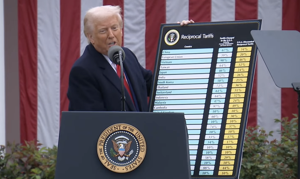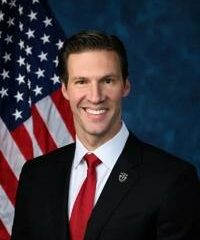(The Center Square) − Louisiana lawmakers are putting insurance reform front and center this session, with Gov. Jeff Landry and Insurance Commissioner Tim Temple pushing legal and regulatory changes to combat high auto, commercial, and homeowners premiums.
The legislative session will begin Monday, with final adjournment scheduled for June 12.
Temple calls the situation a crisis, and says the state must catch up to more competitive neighbors.
House Bill 34, backed by Landry, seeks to expand what evidence juries can hear in injury cases—a move aimed at curbing large verdicts. But tort reform remains divisive.
Sen. Jay Luneau, D-Avoyelles, argues such measures haven’t lowered auto rates in decades.
Commercial auto insurance is a pressing concern.
Rep. Gabe Firment, R-Grant, said businesses are parking trucks and laying off workers due to unsustainable premiums.
On the homeowners’ side, Temple wants to stabilize funding for the Louisiana Fortify Homes Program by redirecting part of the state’s insurance premium tax and modestly increasing fees on insurers. He’s also pushing to double the tax deduction for fortified roofs to $10,000.
Sen. Kirk Talbot, R-Jefferson, has filed a bill to create an income tax credit for homeowners who install them.
Temple is also advocating for more transparency from insurers on rates and discounts. Rep. Candace Newell, D-Orleans, signaled support for broader efforts to lower insurance costs during a Public Affairs Research Council panel.
Beyond insurance, lawmakers are also eyeing education and tax changes. Sen. Rick Edmonds, R-East Baton Rouge highlighted plans to seek $25 million in funding for the M.J. Foster Promise Program, which supports adult credentialing.
He also warned that 40% of Louisiana college graduates are leaving the state and said work is underway with higher ed leaders to better align universities with career pathways.
Edmonds praised rising education report card rankings and said high-dose tutoring is likely to receive renewed funding.
Meanwhile, several tax-related bills have been filed, including 11 which establish tax credits, including a credit for costs tied to developing carbon sequestration wells, for motor vehicle manufacturers and suppliers, and for pharmaceutical and medicine manufacturers.
One proposal by Rep. Danny McCormick would repeal the motion picture production tax credit and reduce the individual income tax rate. Another bill by Rep. Ken Brass, D-Ascension, would extend a tax credit for C-corporations that pay local inventory taxes, but at a reduced rate.
Several bills were filed to limit the carbon capture and storage industry’s power, citing landowner rights, public safety concerns, and lack of transparency. The legislation includes proposals to ban CCS entirely, restrict eminent domain for CO2 pipelines, require near-unanimous landowner consent and enhance public notification and environmental safeguards.
The pushback reflects growing rural opposition to carbon storage projects, amid fears of groundwater contamination, proximity to schools, and erosion of property rights.










































